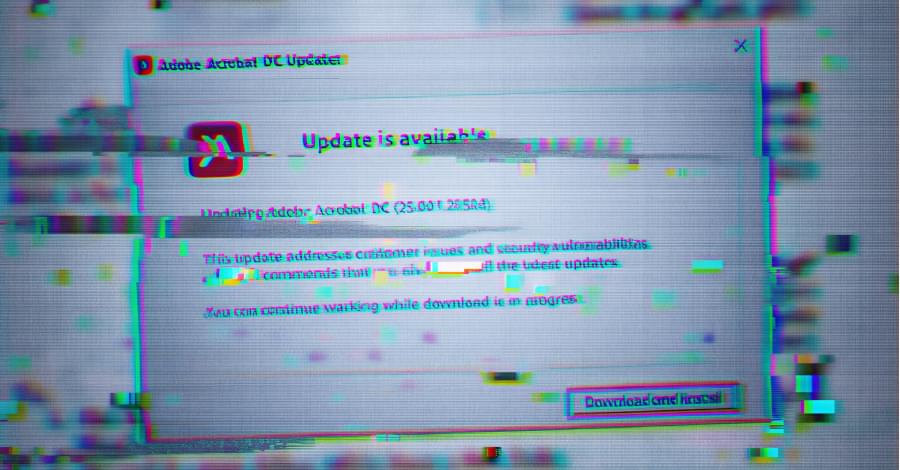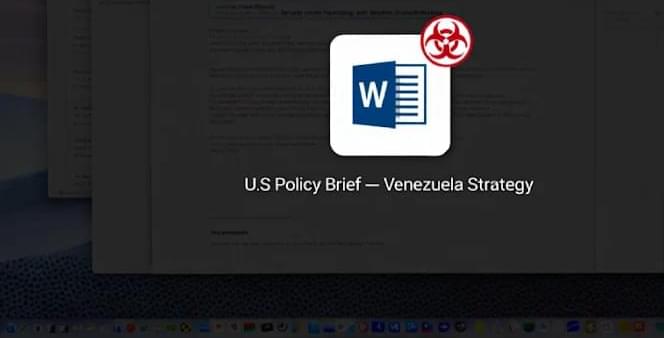Pakistan-linked hackers targeted Indian government entities using phishing, Google services, Golang malware, and GitHub-based command-and-control.


Please Like 👍 + Share ⭐ + Subscribe ✅
In this episode of the New Earth Entrepreneurs podcast, we sit down with John Cumbers, founder of SynBioBeta, to discuss how synthetic biology is reshaping industries and creating sustainable solutions.
John shares insights into the role of bio-manufacturing in decarbonizing supply chains, government initiatives supporting bio-innovation, and the potential for space applications of synthetic biology.
Learn how SynBioBeta is building a passionate community of changemakers to engineer a better, more sustainable world.
Learn more about SynBioBeta and their upcoming events at: www.synbiobeta.com.
Connect with John on LinkedIn: www.linkedin.com/in/john-cumbers-542220
The New Earth Entrepreneurs Podcast explores social entrepreneurship and corporate sustainability through engaging conversations with visionary leaders.

Despite its diminutive size, the organ packs almost 500 feet of wiring and 54.5 million synapses into the size of a grain of sand — an astonishing feat of computational neurology research that allows scientists to better understand how signals travel throughout the brain.
And thanks to significant advances of some of the world’s most capable supercomputers, researchers at the Jülich Research Centre in Germany are now aiming their sights at a far more ambitious goal: a simulation at the scale of the entire human brain.
Previous attempts, dating back a decade, like the Human Brain Project, fell largely flat, despite considerable government funding. But as New Scientist reports, the Jülich researchers think they can push things forward. The idea is to bring together several models of smaller regions of the brain with a supercomputer to run simulations of billions of firing neurons.

Security experts have disclosed details of a new campaign that has targeted U.S. government and policy entities using politically themed lures to deliver a backdoor known as LOTUSLITE.
The targeted malware campaign leverages decoys related to the recent geopolitical developments between the U.S. and Venezuela to distribute a ZIP archive (“US now deciding what’s next for Venezuela.zip”) containing a malicious DLL that’s launched using DLL side-loading techniques. It’s not known if the campaign managed to successfully compromise any of the targets.
The activity has been attributed with moderate confidence to a Chinese state-sponsored group known as Mustang Panda (aka Earth Pret, HoneyMyte, and Twill Typhoon), citing tactical and infrastructure patterns. It’s worth noting that the threat actor is known for extensively relying on DLL side-loading to launch its backdoors, including TONESHELL.
The Age of Abundance: AGI Predictions and Investment Strategy for 2026 ## The imminent emergence of Artificial General Intelligence (AGI) will significantly impact investment strategies, and investors should prepare by accumulating valuable assets, diversifying their portfolios, and adopting a strategic investment approach to capitalize on the growth potential of AGI and the resulting Age of Abundance ##
## Questions to inspire discussion.
Investment Strategy.
🎯 Q: How should I build an investment portfolio for the AGI era? A: Focus on companies with best management and growth potential in AGI, robotics, and space industries using dollar-cost averaging strategy to systematically build positions over time rather than lump-sum investing.
💰 Q: What alternative assets should I accumulate for security during AGI transition? A: Accumulate gold, silver, and Bitcoin as modern safe havens to protect wealth during periods of change and uncertainty as traditional financial systems adapt to AGI disruption.
🏢 Q: Why should real estate be overweighted in an AGI-focused portfolio? A: Overweight real estate compared to company ownership and reserves because AGI and robotics industries will require physical space for operations, data centers, and manufacturing facilities.
Regulatory hurdles, rather than engineering challenges, are the main obstacles hindering the progress and success of Elon Musk’s companies, including SpaceX and Tesla.
## Questions to inspire discussion.
SpaceX Strategic Direction.
🚀 Q: Will SpaceX IPO due to defense contractor requirements? A: SpaceX’s expanding role as a defense contractor through projects like Star Shield increases IPO likelihood, as military requirements typically favor public companies for transparency and accountability according to Palmer Luckey.
🛰️ Q: How is SpaceX enabling freedom of information in restricted regions? A: Starlink has provided unfiltered internet access to Iranians since 2022 in coordination with the US government, successfully resisting signal jamming attempts and enabling freedom of information during protests.
💰 Q: What investment level is the space economy attracting in 2025? A: The space economy attracted $2.2 trillion in private investment in 2025, driven by SpaceX’s success, but viability of speculative models like space hotels and mining depends entirely on Starship’s cost and reliability.
Questions to inspire discussion.
🤖 Q: How will the US military become an AI-first warfighting force?
A: The Department of War will implement continuous experimentation, conduct quarterly force-on-force combat labs, and deploy AI coordinated swarms across all domains from Pentagon back offices to tactical front lines, building on the military AI lead established during President Trump’s first term.
🎯 Q: What defines responsible AI for military applications?
A: The Department of War defines responsible AI as objectively truthful and mission-relevant capabilities employed securely within laws governing military activities, focusing on factually accurate models without ideological constraints limiting lawful military applications.
Talent Acquisition and Workforce.
As AI replaces traditional wage labor, individuals should prepare for an automated future by adapting their skills, investments, and lifestyle to focus on economic stability, personal growth, and self-directed living ## ## Questions to inspire discussion.
Capital Economy Participation.
A: Invest in dividend-producing ETFs for a hands-off approach to wealth building, as AI and robotics reduce labor demand and shift wealth distribution toward capital ownership rather than wages.
🏢 Q: What ownership structures should I explore beyond traditional employment?
A: Consider Employee Stock Ownership Plans (ESOPs) to become a part-owner of companies, but approach Decentralized Autonomous Organizations (DAOs) cautiously due to their high-risk nature despite offering ownership opportunities.
⚠️ Q: Should I rely on Bitcoin for income generation?

A study of some of the first net-zero-ready homes in the UK has found that their peak grid power demand is far lower than planners had anticipated. The research confirms that these all-electric homes can significantly cut energy use and emissions.
Buildings account for around 37% of global energy-related emissions, with residential properties making up approximately 17% of that total. In 2019, the UK government set an ambitious target to achieve net-zero greenhouse gas emissions by 2050. To help meet it, the Future Homes Standard requires all new homes built from 2025 to cut their carbon emissions by 75% to 80%.
Fully electric homes use technologies like air-source heat pumps (ASHPs) for heating (by extracting heat from outdoor air) and solar PV panels for electricity generation. But the big question has been whether they work as promised and achieve their energy efficiency goals in the real world.
Questions to inspire discussion.
💰 Q: What would California’s wealth tax cost super voting shareholders like Larry Page and Sergey Brin? A: The tax multiplies voting ownership percentage by market cap to value super voting shares, resulting in a punitive tax rate of up to 50% on net worth for founders with control premiums.
🏃 Q: How much wealth could leave California if the asset seizure tax passes? A: An estimated half a trillion dollars in net worth could exit the state, creating severe budget implications for California’s social programs and general budget.
📊 Q: What should entrepreneurs do to prepare for potential wealth taxes on unrealized gains? A: Maintain a liquid safety net to cover tax bills on unrealized gains, though this is impossible to plan for if stock values later decline and bankrupt the company.
2026 Business Opportunities.
🤖 Q: Which company will become the first with more robots than humans? A: Amazon is predicted to become the first company with more robots than humans driving its bottom line by 2026 as they deploy robots while keeping human hiring flat.